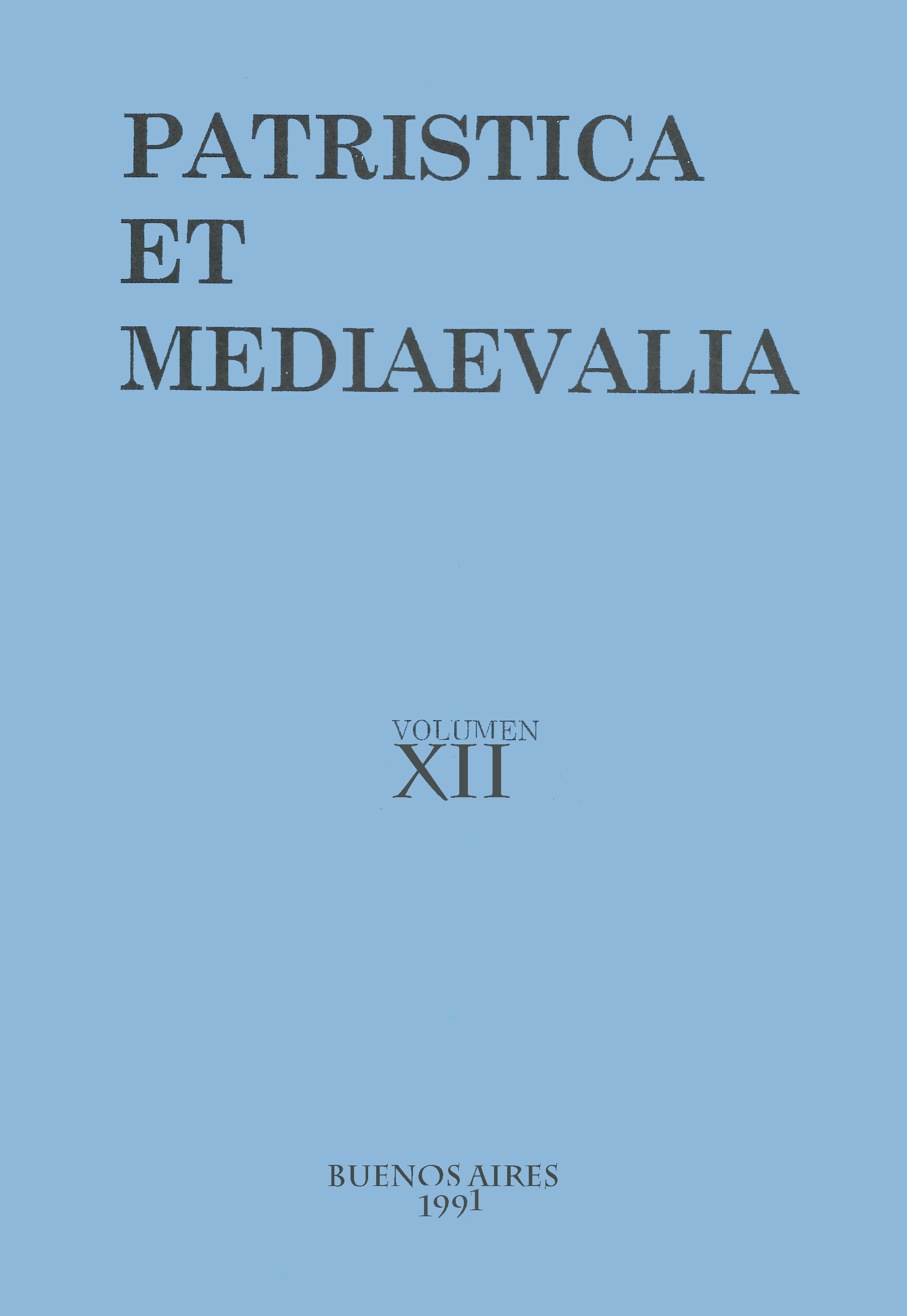Nicolás de Cusa, “De mente”: la profundización de la doctrina del hombre-imagen
Resumen
En el marco de la formulación de la Docta Ignorancia, el tercer diálogo del Idiota presenta una profusa especulación sobre la humana mens. Este tratado comienza con el análisis de la palabra “mens” caracterizada como “mensura” de la totalidad de la realidad. Esto determina el lugar del hombre en el cosmos; Nicolás de Cusa destaca tanto su naturaleza intermedia como su condición de mediación universal. La mens, la única imagen de Dios –todo lo demás es explicatio dei– comparte con el infinito absoluto algunos de sus atributos: capacidad complicativa y poder creativo. Pero, mientras que Dios es “complicatio absoluta” y su vida o fuerza es entitativa, el espíritu humano “complica” humaniter y tiene una vía configurativa o assimilativa. La pregunta “hombre, imagen de Dios” tiene muchas consecuencias originales en Nicolás de Cusa: al dotar de significado al mundo creado por Dios, la humana mens deviene secundus deus. Teniendo en cuenta las consideraciones del De mente sobre este tema, este artículo admite a la élite “moderna” cusana pero destaca, sobre todo, sus raíces profundamente medievales.Descargas
1. Los/as autores/as que publiquen en esta revista aceptan las siguientes condiciones:
-
Conservan los derechos de autor/a y ceden a la revista el derecho de la primera publicación, con el trabajo registrado con Licencia Atribución-CompartirIgual 4.0 Internacional, que permite a terceros utilizar lo publicado siempre que mencionen la autoría del trabajo y a la primera publicación en esta revista.
-
Pueden realizar otros acuerdos contractuales independientes y adicionales para la distribución no exclusiva de la versión del artículo publicado en esta revista (p. ej., incluirlo en un repositorio institucional o publicarlo en un libro) siempre que indiquen claramente que el trabajo se publicó por primera vez en esta revista.
-
Tienen permitido y se les recomienda publicar su trabajo en Internet (por ejemplo en páginas institucionales o personales).
2. Condiciones de auto-archivo. Se permite y se anima a los/as autores/as a difundir electrónicas la versión post-print de sus obras ya que favorece su circulación y difusión y con ello un posible aumento en su citación y alcance entre la comunidad académica. Color RoMEO: azul.













